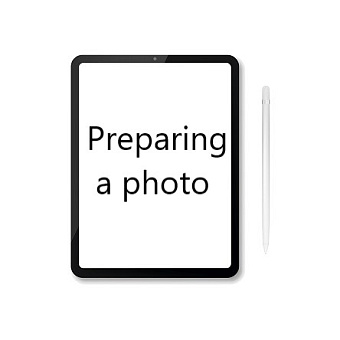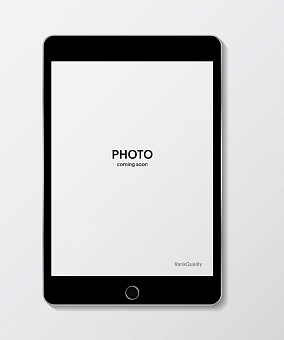 Teclast P10 4G
Teclast P10 4G
 Acer Chromebook Tab 10
Acer Chromebook Tab 10
Comparision Teclast P10 4G vs Acer Chromebook Tab 10
Grade
Top specs and features
AnTuTu Benchmark
Main camera resolution
Pixel Density
Display size
Battery capacity
Description
Welcome to our in-depth comparison of two tablet competitors: Teclast P10 4G and Acer Chromebook Tab 10. Both tablets have been designed with you in mind and each has its own strengths. Let's dive into the details together.
The width of Teclast P10 4G is 239 mm and Acer Chromebook Tab 10 is 172.2 mm. The height of the first tablet is 167 mm and the second one is 238.2 mm. Thickness Teclast P10 4G - 8.9 mm, against - 9.98 mm. Teclast P10 4G weighs 471g vs. 550g.
Teclast P10 4G runs on Android There is no data. The security class is There is no data. Acer Chromebook Tab 10 works on Android There is no data. Has the protection class There is no data.
Screen
Teclast P10 4G has a 10.1 inch screen. The display is based on the LCD IPS matrix. The screen resolution is 1280 x 800 px px and the pixel density reaches 152 ppi, providing rich and vivid images. In comparison, Acer Chromebook Tab 10 offers a 9.7 inch display. Matrix There is no data. Resolution 1536 x 2048 px and density 264ppi ensure excellent detail and clarity.
Performance
The heart of Teclast P10 4G is a processor MediaTek MT6737 operating at a frequency of 1.3 MHz. Processor configuration 4 x core. Teclast P10 4G is equipped with 4 cores. Ships with 2 GB of RAM. The video processor ARM Mali-T720 is responsible for the graphics. The maximum frequency of the graphics core There is no data MHz. All this ensures smooth and fast operation of applications and games. In contrast, Acer Chromebook Tab 10 runs on a There is no data processor running at There is no data MHz. Processor configuration 4 x core. The amount of RAM is 4 GB of RAM. Acer Chromebook Tab 10 has a video processor There is no data. The GPU clock reaches There is no data MHz, offering superior performance and fast application performance.
According to AnTuTu Benchmark, Teclast P10 4G scores 30405 points, while Acer Chromebook Tab 10 scores There is no data points.
Camera and Video
Teclast P10 4G's main camera resolution is 1.9 MP. Aperture f/There is no data. The CMOS sensor delivers great pictures and videos. It also features a There is no dataMP front-facing camera. Front camera aperture f/There is no data. Acer Chromebook Tab 10 has a 5 MP camera in its arsenal. Its aperture is f/There is no data. The manufacturer did not forget about the front camera and provided it with 2 MP resolution. Front camera aperture at Acer Chromebook Tab 10 f/There is no data.
Battery and Charging
Teclast P10 4G has Li-Polymer battery. Its capacity is 4850 mAh. Supports fast charging with a power of There is no data W. In contrast, Acer Chromebook Tab 10 offers battery with a capacity of There is no data mAh. Supports fast charging with There is no data W power, which provides fast & nbsp; charging time.
Memory and storageTeclast P10 4G has built-in memory 16 GB for storing files and data. On the other hand, Acer Chromebook Tab 10 offers 32 GB of internal memory.
Why Teclast P10 4G is better than Acer Chromebook Tab 10
- Display size 10.1 " против 9.7 ", more on 4%
- Thickness 8.9 mm против 9.98 mm, less by -11%
- Weight 471 g против 550 g, less by -14%
Teclast P10 4G vs Acer Chromebook Tab 10: highlights


Performance
Camera
Battery
Main characteristics
Display
Interfaces and communications
FAQ
How do the benchmark results differ between Teclast P10 4G and Acer Chromebook Tab 10?
According to the AnTuTu benchmark, Teclast P10 4G scored 30405 points, while Acer Chromebook Tab 10 scored There is no data out of a possible 911349 points.
Which tablet has better camera - Teclast P10 4G or Acer Chromebook Tab 10?
The main camera of Teclast P10 4G has a sensor resolution of 1.9 megapixels, while Acer Chromebook Tab 10 has a sensor resolution of 5 megapixels.
Which battery is better - Teclast P10 4G or Acer Chromebook Tab 10?
Teclast P10 4G's battery capacity is 4850 mAh, while Acer Chromebook Tab 10's is There is no data mAh.
What memory is available on these tablets?
Teclast P10 4G has a built-in memory of 16 GB and Acer Chromebook Tab 10 has 32 GB.
What screens are used in these tablets?
The screen of Teclast P10 4G has a LCD IPS matrix. Acer Chromebook Tab 10 uses the There is no data matrix.
What processor is offered in Teclast P10 4G and Acer Chromebook Tab 10?
Teclast P10 4G is running on processor MediaTek MT6737 and Acer Chromebook Tab 10 is running on processor There is no data.
What is the screen resolution of Teclast P10 4G and Acer Chromebook Tab 10 tablets?
Teclast P10 4G has a display resolution of 1280 x 800 px inches and Acer Chromebook Tab 10 has a resolution of 1536 x 2048 inches.
What is the weight of Teclast P10 4G and Acer Chromebook Tab 10 tablets?
Teclast P10 4G weighs 471 grams while Acer Chromebook Tab 10 weighs 550 grams.
How many SIM cards do these tablets support?
Teclast P10 4G supports up to 2 SIM cards. Acer Chromebook Tab 10 this number is There is no data.
What moisture protection do these tablets have?
Teclast P10 4G is IPThere is no data waterproof. Acer Chromebook Tab 10 this value is IPThere is no data.
How much RAM is installed in Teclast P10 4G and Acer Chromebook Tab 10?
The maximum amount of RAM in Teclast P10 4G is 2 GB, and in Acer Chromebook Tab 10 it is 4 GB.





















